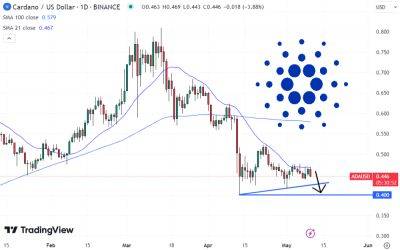Concerns Raised Over China’s Influence on US Bitcoin Mining Infrastructure
Amidst growing concerns about national security and infrastructure vulnerabilities, China’s role in the cryptocurrency sphere has become a focal point of discussion.
Historically, the U.S. has taken firm actions against perceived threats from Chinese technology companies such as Huawei and TikTok.
The stakes are higher with cryptocurrencies, as Bitcoin mining operations could potentially serve as a hardware layer that’s deeply integrated into critical U.S. systems, including energy and telecommunications infrastructures.
Bitcoin mining, the process of introducing new coins into circulation and securing the network, relies heavily on sophisticated computing systems.
These systems require high-performance semiconductors known as ASICs, predominantly supplied by China.
Notably, Chinese firms control approximately 98% of the ASIC market, with major players like Bitmain at the forefront.
These chips, although designed in China, are manufactured by Taiwan’s TSMC using advanced technologies.
This dominance in the semiconductor sector presents multiple challenges related to U.S. trade policies, competitiveness, and national security, according to Sriram Viswanathan , the founding managing partner of Celesta Capital.
Despite existing tariffs and trade measures, Chinese companies have found ways to circumvent these restrictions, often by relocating operations or engaging in aggressive market strategies to undercut U.S.-based ASIC producers, he said.
Such tactics undermine significant legislative efforts like the CHIPS Act, which aims to bolster domestic semiconductor production.
The expansion of Bitcoin mining facilities in the U.S., many of which are Chinese-owned and utilize Chinese-manufactured equipment,






















